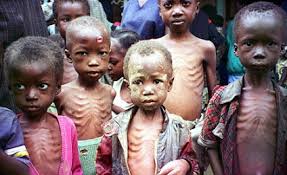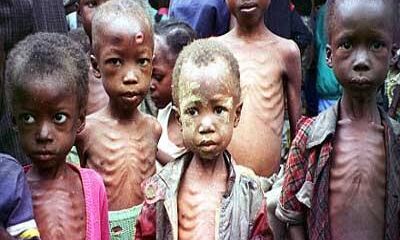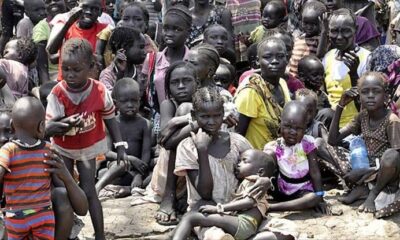International charity organization, MédecinsSans Frontières (MSF), says severe malnutrition in Northern Nigeria has risen by 51 per cent after treating over 52,725 children with the life-threatening condition across the region over the first eight months of this year.
MSF’s International President, Dr Christos Christou, who disclosed this during a press briefing in Abuja on Sunday, said for the past few years, MSF had seen a significant increase in the number of admissions for malnutrition.
Christou stated that the numbers in 2022 and 2023 were already critically high, adding that between January and August of 2024, MSF has seen a 51 per cent increase in admissions of children with severe malnutrition, compared to the same period last year.
“On top of this, outbreaks of vaccine-preventable diseases, such as measles are recurrent in Nigeria, and one of the leading causes of death amongst children. Between January – August this year alone, we had already treated over 12,500 cases of measles. That’s nearly double the same period last year,” he said.
“Outbreaks of infectious diseases significantly increase mortality risks for children under the age of five. Unvaccinated children in this age group are particularly vulnerable to vaccine-preventable diseases; diseases which elevate the risk of acute malnutrition.”
He noted that during his visit to Nigeria, he saw why the recent massive flooding in Maiduguri had gained some attention worldwide, stressing that the shocking scale had affected millions of people.
“Maiduguri is not the only place in Nigeria affected by flooding, the people in northern Nigeria have been through a lot.
“This includes overwhelming levels of malnutrition, frequent outbreaks of vaccine-preventable diseases, lack of medical facilities and medical personnel. All of this has been compounded by continuous insecurity.
“People now have to seek temporary shelter in displacement camps once again, rebuild their homes once again, and try to figure out what’s left of their farmlands. Because this flooding happened at the end of the lean season, it has deprived farmers of even the illusory hope to harvest.
“All this has happened in the background of a catastrophic malnutrition crisis. One of my colleagues, a Nigerian doctor who has been working with MSF for more than eight years, told me that this year is very different.
“Every year, he said, during this season, we see terrible numbers of malnourished children coming to the hospital in severe condition. But this year, at a time when the peak is supposed to be over, the number of patients admitted to the hospital is not going down. Worse, the condition in which they arrive is even more severe than usual.
“Very often people don’t have access even to basic medical care where they live, and do not have enough money or available transport. As a result, they reach to us too late.
“This is not the time to relent, this is not the time to stop. We have to help the people who need assistance now,” Christou added.

 Politics2 days ago
Politics2 days ago
 VenturesNow2 days ago
VenturesNow2 days ago
 Metro2 days ago
Metro2 days ago
 Musings From Abroad2 days ago
Musings From Abroad2 days ago




























